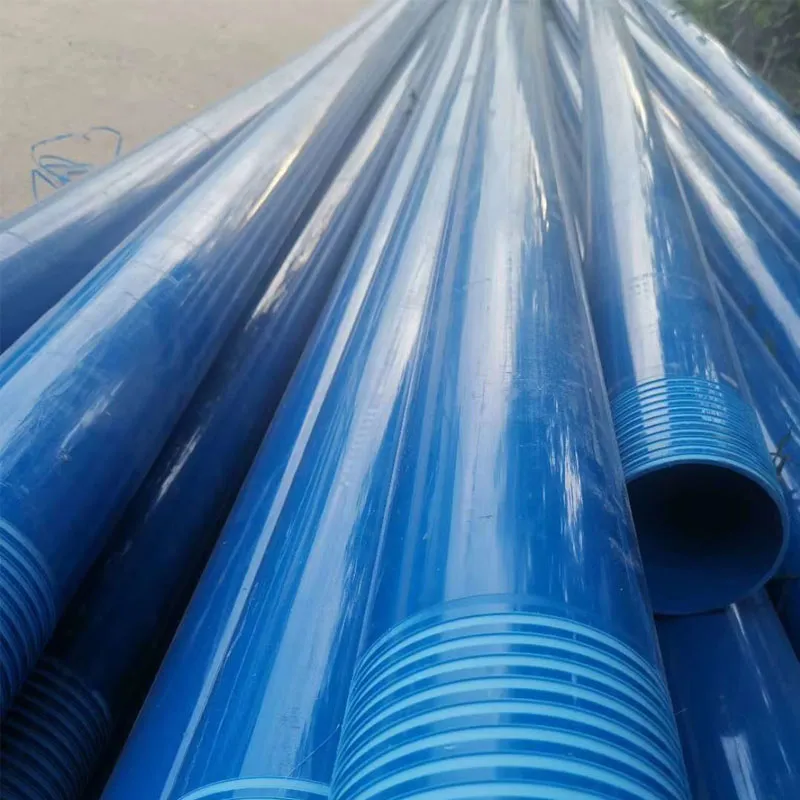Oct . 10, 2024 09:28 Back to list
dn150 hdpe pipe for irrigation manufacturer
DN150 HDPE Pipe for Irrigation A Comprehensive Overview
In the realm of modern agriculture and irrigation, the choice of materials plays a crucial role in the efficiency and sustainability of water management systems. One of the most preferred materials for irrigation pipes is High-Density Polyethylene (HDPE). In particular, DN150 HDPE pipes are gaining popularity for their numerous advantages in irrigation applications. This article delves into the features, benefits, and considerations of using DN150 HDPE pipes for irrigation, focusing on their manufacturing, performance, and environmental implications.
Understanding DN150 HDPE Pipes
The designation DN150 refers to the nominal diameter of the pipe, which is approximately 150 millimeters. HDPE is a thermoplastic polymer known for its high strength-to-density ratio, making it exceptionally durable and resistant to a variety of environmental factors. The combination of DN150 sizing and HDPE material results in a pipe that is not only robust but also versatile for different irrigation systems, including surface irrigation, subsurface irrigation, and drip irrigation systems.
Key Features of DN150 HDPE Pipes
1. Durability and Longevity DN150 HDPE pipes are engineered to withstand challenging conditions such as extreme temperatures, UV exposure, and aggressive soil types. Their resistance to corrosion and chemical leaching significantly extends their lifespan, making them ideal for long-term irrigation solutions.
2. Flexibility and Light Weight Despite their robust nature, HDPE pipes are lightweight, which facilitates easy handling and installation. Their flexibility allows them to be installed in various configurations, adapting to the contours of the landscape without compromising performance.
3. Hydraulic Performance The smooth interior surface of DN150 HDPE pipes minimizes friction loss, thereby promoting efficient water flow. This characteristic is crucial for irrigation systems where uniform water distribution is essential for crop health and yield.
4. Jointing Systems DN150 HDPE pipes can be connected using various jointing methods, including electrofusion, butt fusion, and mechanical fittings. These options provide flexibility in installation and ensure leak-proof connections, reducing the risk of water wastage.
dn150 hdpe pipe for irrigation manufacturer

Benefits of Using DN150 HDPE Pipes in Irrigation
1. Cost-Effectiveness While the initial investment in DN150 HDPE pipes may be higher than traditional materials like PVC or steel, their durability and low maintenance needs often result in lower long-term costs. Farmers and agricultural enterprises can benefit from reduced replacement frequency and maintenance expenses.
2. Environmental Impact Sustainable irrigation practices are vital for conserving water resources. DN150 HDPE pipes facilitate precise water application, such as in drip irrigation systems, which minimizes overwatering and promotes water conservation. Additionally, HDPE is recyclable, further reducing its environmental footprint.
3. Compatibility with Modern Irrigation Technologies As irrigation practices become increasingly sophisticated, DN150 HDPE pipes are compatible with advanced technologies such as automated irrigation systems and sensors for soil moisture monitoring. This compatibility enhances the overall efficiency of irrigation practices.
Considerations for Manufacturers and Users
When choosing DN150 HDPE pipes for irrigation, it is essential to select a reputable manufacturer who adheres to industry standards and regulations. Quality assurance processes, including rigorous testing for pressure resistance and environmental stress cracking, are critical for ensuring the reliability of the pipes.
Moreover, users should consider factors such as the specific requirements of their irrigation system, local soil conditions, and climate when selecting the right pipe for their needs. Consulting with irrigation experts can help in making informed decisions that align with agricultural goals.
Conclusion
In conclusion, DN150 HDPE pipes represent a cutting-edge solution for modern irrigation systems, combining durability, flexibility, and efficiency. As agriculture continues to adapt to the challenges of climate change and water scarcity, the role of innovative materials like HDPE will be increasingly vital. By investing in high-quality DN150 HDPE pipes from reliable manufacturers, farmers and irrigation specialists can ensure sustainable and effective water management that supports the health of crops and the environment alike.
-
High-Quality PVC Borehole Pipes Durable & Versatile Pipe Solutions
NewsJul.08,2025
-
High-Quality PVC Perforated Pipes for Efficient Drainage Leading Manufacturers & Factories
NewsJul.08,2025
-
High-Quality PVC Borehole Pipes Durable Pipe Solutions by Leading Manufacturer
NewsJul.08,2025
-
High-Quality PVC Borehole Pipes Reliable PVC Pipe Manufacturer Solutions
NewsJul.07,2025
-
High-Quality UPVC Drain Pipes Durable HDPE & Drain Pipe Solutions
NewsJul.07,2025
-
High-Quality Conduit Pipes & HDPE Conduit Fittings Manufacturer Reliable Factory Supply
NewsJul.06,2025

